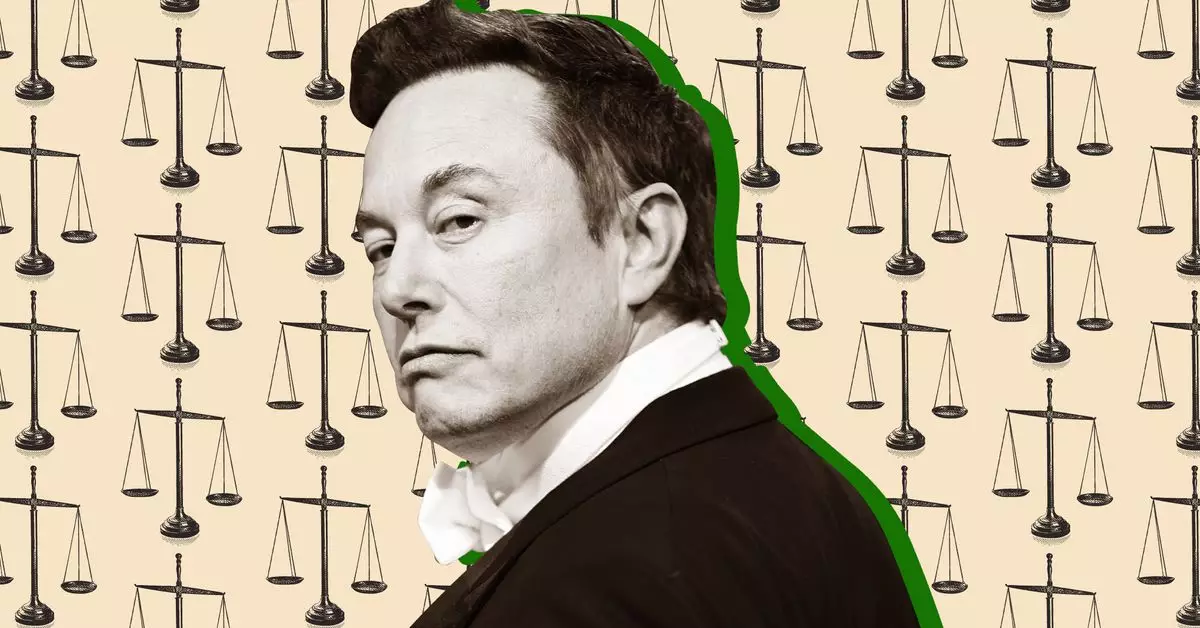In a significant and escalating legal confrontation, Elon Musk is intensifying his case against OpenAI, the artificial intelligence research organization he co-founded. As of late Friday, Musk’s legal team filed a motion in court seeking a preliminary injunction to halt OpenAI’s pivot towards becoming a for-profit entity. This motion has stirred considerable interest, not only due to Musk’s high profile but also because it raises pertinent questions about the ethical and regulatory frameworks governing AI development. The nature of the claims being brought forth—touching on potential violations of U.S. antitrust laws—adds another layer of complexity to the already intricate landscape of AI governance.
Musk’s attorneys are arguing that due to actions taken by OpenAI’s CEO, Sam Altman, there is a significant risk that the company may not have the necessary financial resources to compensate Musk should he prevail in his lawsuit. The essence of this argument revolves around allegations of self-dealing within OpenAI, raising concerns about corporate governance and fiscal responsibility. If true, such allegations can pave the way for broader discussions about accountability in organizations that manage significant technological resources. These financial implications extend beyond Musk’s lawsuit, possibly affecting investor confidence and OpenAI’s relationships with stakeholders in the tech ecosystem.
Reports have emerged that OpenAI is actively exploring a shift to a for-profit model, which has been framed as a necessary step to secure funding for its ambitious AI research goals. However, this transition is fraught with controversy. Critics argue that pivoting towards profit could compromise the ethical standards and mission-driven focus that have characterized OpenAI’s operations thus far. The potential quest for profit raises unsettling questions about the prioritization of financial gain over ethical considerations in AI development. It is crucial to observe how this transformative phase will impact the broader AI landscape, especially in light of the ongoing scrutiny from legal and regulatory bodies.
Musk’s lawsuit also brings forth serious claims against OpenAI and its partnership with Microsoft, suggesting that these entities engaged in activities designed to stifle competition. Specifically, Musk’s lawyers contend that they requested investors to refrain from supporting their mutual competitors, which could be interpreted as collusive behavior contrary to the Sherman Act. If validated, these allegations could have far-reaching consequences for the collaboration between tech giants and their strategic alliances, igniting debates about monopolistic practices in the rapidly evolving tech industry.
As Musk’s legal challenges unfold, they highlight broader implications for the AI sector, particularly regarding regulatory oversight and ethical practices. The intersection of law and technology is becoming increasingly relevant as companies explore innovative yet potentially disruptive applications of AI. Policymakers may need to reassess existing frameworks to ensure that rapid advancements do not occur in a regulatory vacuum, which could compromise public trust and safety. The ongoing saga not only concerns Musk and OpenAI but potentially sets a precedent for how AI entities will navigate the complex landscape of legality, competition, and corporate responsibility moving forward.

